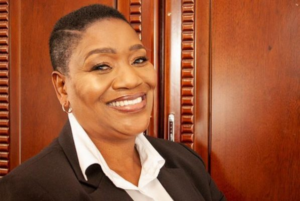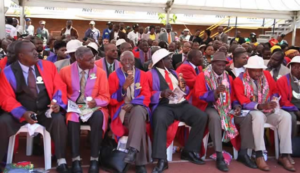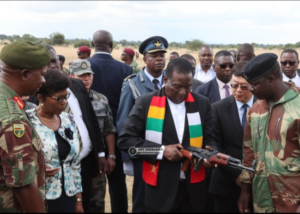SILENCING DISSENT: THE UNJUST INCARCERATION OF JACOB NGARIVHUME
In a startling move undermining democratic values, Zimbabwean opposition figure Jacob Ngarivhume has been sentenced to a four-year imprisonment, with one year suspended, for his role in leading a peaceful protest. This harsh sentence, meted out under the pretext of inciting public unrest, starkly highlights the government’s crackdown on free speech and peaceful assembly.
Ngarivhume’s demonstration in July 2020 was a call against corruption and the deprivation of socio-economic rights, fundamental issues plaguing Zimbabwe. It’s alarming that advocating for such essential rights has led to his incarceration. His only ‘crime’ was exercising his constitutional rights to free speech and peaceful assembly.
Vongai Chikwanda, acting Deputy Director for Southern Africa at Amnesty International, has voiced concern over this issue. This sentencing is not just an individual case; it’s symptomatic of a broader strategy to suppress opposition voices using judicial intimidation.
The charges against Ngarivhume signal a disturbing trend in Zimbabwe’s political landscape. The legal system, ideally an instrument of justice and fairness, is being manipulated to quell dissent. This represents a significant threat to democracy, highlighting the erosion of foundational freedoms – the right to express dissent and to gather peacefully.
Ngarivhume’s case is a vivid illustration of the government’s willingness to go to great lengths to silence dissent. The severity of his sentence serves as a chilling deterrent to anyone who might dare to speak out against government corruption or injustice. This use of state power to muzzle opposition is not only a threat to democracy but also a blatant violation of human rights.
Amnesty International’s call for the annulment of Ngarivhume’s sentence is a plea for justice and a reminder of the need to uphold freedom of expression. In a country where the rule of law should be paramount, such blatant misuse of the judicial system to punish political adversaries is a gross betrayal of democratic principles.
The international community and advocates of democracy must take a closer look at the Zimbabwean government’s practices. The targeting of Ngarivhume is emblematic of a wider crackdown on opposition leaders, human rights activists, journalists, and critical voices. This situation is a dire warning about the ongoing disregard for fundamental human rights, particularly the freedoms of expression and assembly, which are crucial for promoting transparency and accountability.
Jacob Ngarivhume’s conviction is more than an isolated incident; it’s indicative of a growing pattern of authoritarianism in Zimbabwe. The lengths to which authorities will go to silence those who challenge corruption and demand justice is a stark reminder of the risks faced by those fighting for democratic ideals.
This situation calls for urgent action from both local and international entities to safeguard fundamental human rights and democratic values in Zimbabwe. It’s a fight not just for the freedom of one individual but for the preservation of democratic principles in a nation where these rights are increasingly under threat.



